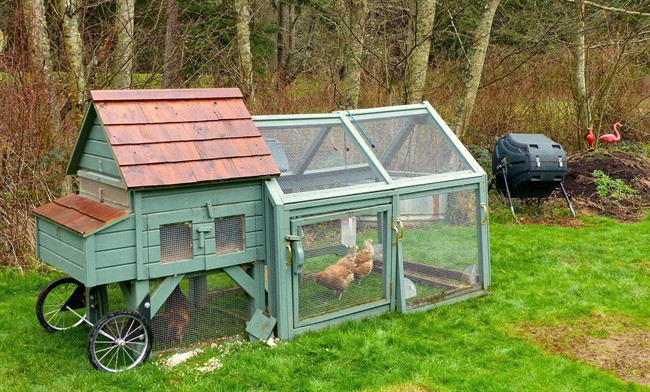Organic and synthetic fertilizers are the most common way to add nutrients to the soil, but animal manure is good too, if you can find and transport it.

Unless applied properly, however, it can kill edible crops and cause serious gastrointestinal disorders.
“Manures are being looked at differently and the timing of their application is different now from what we’ve advised in the past,” said Mark Hutchinson, a horticulturist with University of Maine Cooperative Extension and a faculty member at the Maine Compost School.
“You’re no longer going to apply fresh manure and two days later do your planting. Rather, you should apply it in the fall, let a cover crop grow and allow the manures to mature,” Hutchinson said. “It’s a food safety issue rather than a nutrient issue. We’ve all seen the outbreaks of E. coli over the past couple of years.”
Not all animal manures hold the same combinations or levels of nutrients. Chicken manure, for example, is especially high in ammonia, phosphorous and nitrogen. Even decomposed, it can damage tender plant roots.

Get breaking National news
Goat and sheep manure is drier and easier to apply. It gives off fewer odours, too. Horse and cattle manure contains a wide range of nutrients but lacks strength. Worm castings are extremely rich in nutrients but costly when used in large volumes.
Most animal waste contains bedding — generally straw, sawdust or wood shavings. These bulk up the nutrient mix and help condition the soil but often introduce weed seeds into your plant beds.
“Most home gardeners probably won’t be using fresh manure unless they have some chickens in their backyard,” said Carl Rosen, a professor and head of the Department of Soil, Water and Climate at the University of Minnesota in St. Paul. For those who do, “you can run into problems using it because it will be too hot for your plants. You’ve got to compost it.”
Suggestions for using animal manure properly:
- Test the soil before applying. Some nutrients remain vigorous in the ground beyond a single growing season. These enriched nutrients may infiltrate the groundwater, creating harmful algal blooms downstream that will kill aquatic wildlife and contaminate drinking water.
- Use it in moderation. Too little may result in a nutrient deficiency and low yields. Too much and you’ll be growing more vegetation than fruit. “People think three or four handfuls are good when they only need one,” Hutchinson said. “That old saying ‘too much is better’ is not the best.”
- Apply it just before a rain. “That washes in the nutrients you want to conserve,” Hutchinson said.
- Cat, dog and pig manures are a disease threat because they may contain harmful pathogens and parasites. Do not use them in food gardens.
- Spread raw manure in the fall or well before planting time to let it age. Never apply fresh manure after a garden is planted. Apply raw manure at least 60 days before harvesting any garden vegetables that will be consumed without cooking, Washington State University horticulturists say. And wash — thoroughly wash — all raw vegetables before eating.

Comments
Want to discuss? Please read our Commenting Policy first.